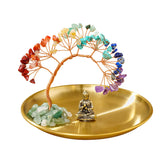Elephant
Elephants aren’t just big and strong—they’re also super smart and have a ton of meaning in cultures all over the world. This blog dives into what elephants symbolize and why they’re so important. From ancient myths to modern-day respect, elephants are more than just animals—they’re symbols of wisdom, power, and spirituality.
What Does the Elephant Symbol Represent?
Elephants are famous for being huge and powerful, but people really admire them for their brains. They’re known for being wise, having great memory, and being super intelligent. In many cultures, elephants stand for calmness, resilience, and even good luck. People respect elephants so much that they’ve become symbols of stability and patience.
Has the Elephant Been Used Historically in Symbolism?
Elephants have been super important symbols throughout history. Their size and smarts have made them more than just animals—they’ve been part of cultural symbols that represent strength, wisdom, and even spiritual ideas.
Ancient Civilizations
-
In ancient India, elephants were linked to both royal power and divine stuff. Indra, the king of gods in Hindu mythology, rides a white elephant named Airavata. This elephant symbolizes rain, which brings fertility and prosperity to the land. It shows how elephants are connected to power, leadership, and taking care of people.
-
In other parts of Asia, especially where Buddhism is big, elephants symbolize mental and physical strength, patience, and honor. You’ll often see them in ancient carvings and temple decorations, representing endurance and the calm power needed to overcome challenges.
Medieval and Renaissance Europe
-
In Medieval and Renaissance Europe, elephants were super rare and mysterious. Kings would give them as gifts to show how rich and powerful they were. In Christian art, elephants stood for chastity, patience, and self-control—important virtues back then. They were often used in stories to teach moral and spiritual lessons.
-
In royal zoos, having an elephant showed that the king had connections to far-off lands and could get rare things. These zoos were like living art collections, showing off the king’s control over nature and the supernatural.
How Do Different Cultures View the Elephant Symbol?
Different cultures see elephants in different ways:
In Asian Cultures
-
In Buddhism, the white elephant is all about mental strength and peace. Elephants are calm and composed, which is really important in Buddhist teachings.
-
In Hinduism, the elephant-headed god Ganesh is one of the most important deities. He’s known for removing obstacles and being super wise. His elephant head shows great intelligence and thinking skills.
In African Cultures
-
In Africa, elephants are seen as the chiefs of the animal kingdom. They represent wisdom, strength, and loyalty to family. Elephants are respected for their leadership and community spirit.
In Western Cultures
-
In the West, elephants often symbolize memory and wisdom. In the United States, the Republican Party uses an elephant to represent strength and dignity. It’s a symbol of power and respect.
What Role Do Elephants Play in Religious Symbolism?
Elephants have deep symbolic meanings in different religions:
Hinduism
-
Ganesh: In Hinduism, the elephant-headed god Ganesh is super important. He’s known for removing obstacles and being the god of wisdom and intellect. People celebrate him during festivals like Ganesh Chaturthi, making statues and performing rituals to ask for his blessings.
Buddhism
-
White Elephant: In Buddhism, the white elephant is a symbol of purity and spiritual greatness. It’s believed that Queen Maya, Buddha’s mother, dreamt of a white elephant before he was born. Elephants in Buddhism represent mental strength, patience, and responsibility.
Other Religious Traditions
-
African Traditions: In some African religions, elephants are seen as connectors to ancestral spirits. They symbolize wisdom, longevity, and family loyalty.
How Can Understanding Elephant Symbolism Enhance Our Appreciation of Elephants?
Understanding what elephants symbolize can help us appreciate them even more and see why it’s so important to protect them. Here’s how:
-
Cultural Significance: Knowing how important elephants are in different cultures can help us support conservation efforts. It’s not just about saving animals—it’s about preserving cultural heritage.
-
Conservation Efforts: By learning about elephant symbolism, we can get more people involved in protecting them. It’s not just about biology—it’s about the cultural and spiritual importance of these amazing creatures.
In conclusion, elephants are more than just big animals—they’re symbols of wisdom, strength, and spirituality. Whether you look at them through the lens of religion, history, or art, elephants have a deep significance that resonates around the world. By understanding these symbols, we can appreciate elephants even more and work harder to protect them. Let’s use this knowledge to actively support elephant conservation and preserve these majestic creatures for future generations.














